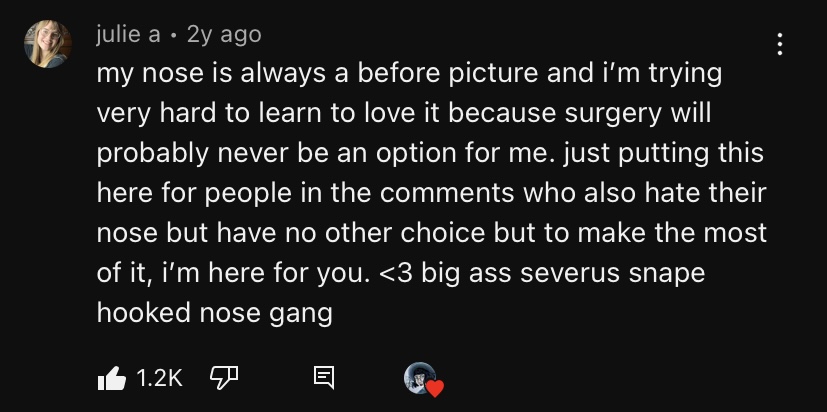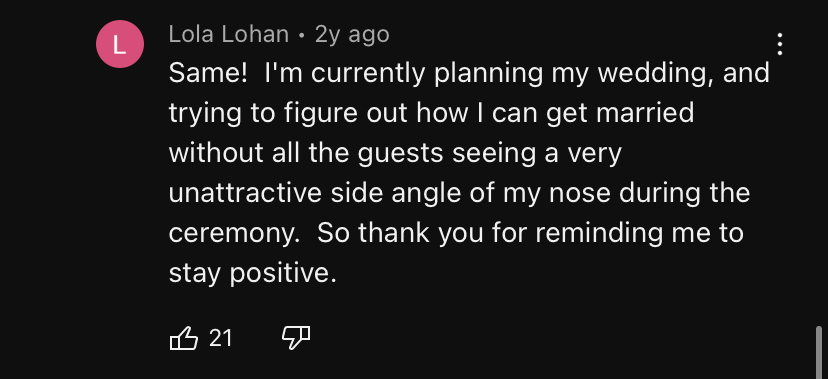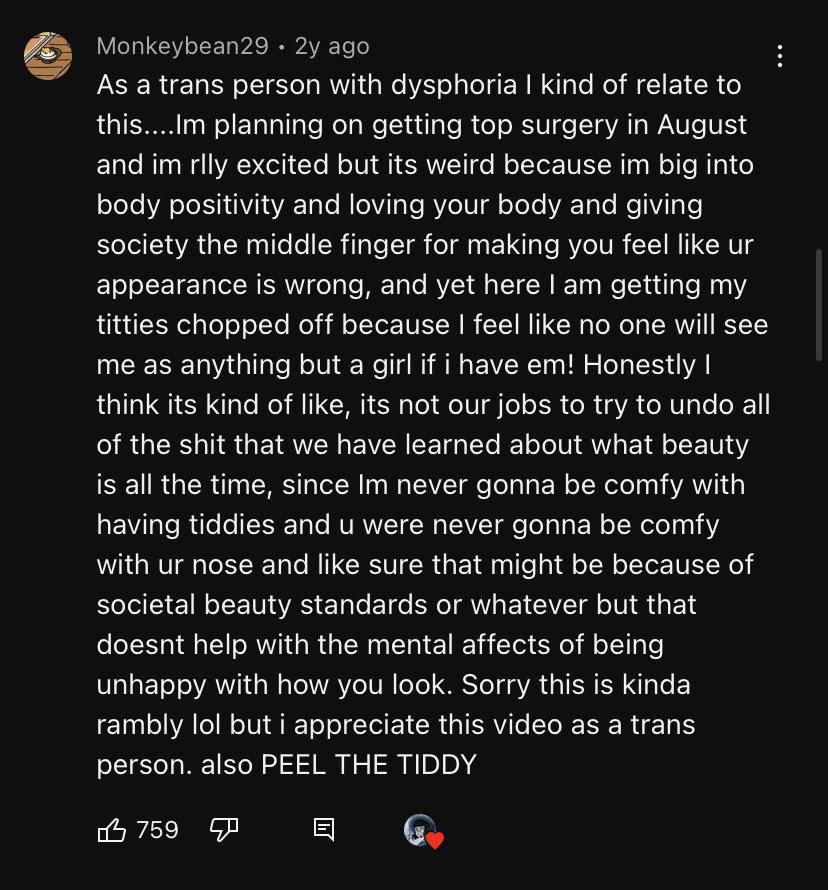On Systems, Activism, and the Individual
People seem to struggle to recognize and understand the underlying systems that hold together our world. Furthermore, there seems to be a widespread misunderstanding of what it actually means for something to be a "social construct."
This is likely because an individual can only see a small segment of the world for themself: they're only familiar with their own life and what is happening around them. Yes, certain advancements such as books and social media have definitely expanded the average person's view of the world compared to, say, a medieval peasant, but the fact remains that it is impossible for an individual to truly see every piece of the puzzle at once. Instead, what is happening more and more frequently, is that people are assuming that they are alone in their experiences, that they live in a personal individualized bubble that somehow shuts out the pressures of the outside world. Their thoughts are simply their own, unrelated to outside influences. The world, as it is, exists separately to what's in their heads.
But an individual is as much a part of the systems making up the world as, say, a blade of grass or an insect – that is to say, they are simultaneously a product of the world and play a vital role in its perpetuation, whether they notice it or not. It's impossible to simply 'opt out' of material reality: even in death, they take part in the decay cycle, producing nutrients for other creatures.
In school, we learn about natural and manmade cycles, separately, in subjects ranging from biology to ecology to economics to the social sciences and more. Our learning of the Krebs cycle is unrelated to the Law of Supply and Demand, which is unrelated to the population cycle of a specific species of native insect, which is unrelated to social systems and systemic oppression in humans, which is — and so on. Keeping this in mind, it would make sense that people apply this same logic to the concept of a system itself: believing that each individual step can take place independently, as if on a separate page of a textbook. In reality, however, everything is a confounding variable, unable to be removed or changed without causing massive changes in every other part of the world.
Still, there is a major difference between natural and man-made systems: social constructs have no true foundation and, thus, can change overtime. Humans are completely powerless to, for example, stop the Earth's rotation and make the Sun stop "rising" or any other natural event, but it is, hypothetically, possible to dissect and dissolve systemic inequalities in our society.
As I said earlier, the reason why I'm writing this is because, there seems to be a strange tendency to shift focus away from these social constructs and their effects and, instead, say that everything hinges solely on the individual and their "personal choices."
A classic example is beauty culture, in which people (mostly women) are pressured into believing that something is wrong with their natural appearance, that they have to wear makeup or get cosmetic surgeries or wear the latest fashions or whatever else to better fit some ideal cultural image. These women vehemently deny this, though, and insist that everything they do is strictly for themselves because they personally like it or because it feels "empowering."
They fail to realize that you are subtly rewarded for playing along with these societal expectations and punished for defying them – if you notice that people treat you better when you wear makeup compared to when you don't, that's not a choice. If you spend all your time worrying about your appearance and wanting to seem 'presentable' to an audience (whether it's your Instagram followers or simply the other shoppers at the grocery store), it's not a choice. That's not even mentioning blind women or even women who are literally in labor who still feel pressured to have perfect makeup!
I want to reiterate: I'm not judging these women or looking down on them in anyway. But these ideas, as prevalent as they are, show the extent to which women (as a class) are objectified, and how they are forced into participating in their own objectification. As Margaret Atwood put it in her 1993 novel, The Robber’s Bride:
Male fantasies, male fantasies, is everything run by male fantasies? Up on a pedestal or down on your knees, it's all a male fantasy: that you're strong enough to take what they dish out, or else too weak to do anything about it. Even pretending you aren't catering to male fantasies is a male fantasy: pretending you're unseen, pretending you have a life of your own, that you can wash your feet and comb your hair unconscious of the ever-present watcher peering through the keyhole, peering through the keyhole in your own head, if nowhere else. You are a woman with a man inside watching a woman. You are your own voyeur.
It feels like there's something external to you, watching you and judging you; and that feeling persists even when alone.
That leads into the most nefarious thing about beauty culture: it doesn't exist only in the individual, but goes on to affect everyone around them as well. For example, in 2018, Youtuber S


When one person shows that they're upset with how they look, it makes other people with similar features also feel uncomfortable or just increase their self-consciousness, y'know? It's a never-ending cycle.
Also, this following person brought up an interesting point that I'd like to address:

Let’s focus on these lines in particular:
im big into body positivity and loving your body and giving society the middle finger for making you feel like ur appearance is wrong […] Honestly I think its kind of like, its not our jobs to try to undo all of the shit that we have learned about what beauty is all the time
Their self-proclaimed values directly conflict! Like, I understand and sympathize with their dysphoria and struggling from societal pressures, but if even someone who is allegedly “big into body positivity” doesn’t think it’s “their job” to do anything about beauty standards in our culture, then who’s going to do it? What does it even mean to be “body positive" if it doesn't involve, at the very least, questioning beauty standards and other harmful societal norms??
You really see these sorts of sentiments a lot, both on and off social media. All too often, people merely pay lip service to the causes they claim to believe in, without actually questioning anything or taking genuine action. Their activism stops in empty words and consumerism.
To understand why this is such a big trend, I think we have to go back to the nineties: Judith Butler (whose first major book, Gender Troubles, came out in 1990) is perhaps one of the most widely recognized, influential feminists of the modern day, yes? In her 1999 essay, "The Professor of Parody: The hip defeatism of Judith Butler," feminist and philosopher Martha C. Nussbaum's explains how, in Butler's view, societal change is impossible and, furthermore, it's not even worth trying. The above comment by Monkeybean29 seems to express a similar sentiment, acknowledging that these societal standards are harmful, but just giving up rather than fighting against them: if the individual can't change society, then it's the individual who should be changed. What kind of message is that?!
As Nussbaum says shortly after, we have seen through history that conditions for marginalized groups can definitely improve, but only when people are actually determined to bring about change (ex: the Civil Rights movement and the dissolution of racial segregation in the US, Suffragists securing women's right to vote, improved laws in regards to holding rapists responsible, etc).
In comparison, as of writing this in 2022, we're currently in a time with a self-proclaimed focus on "social justice," but it's completely toothless and resigned. For example, on Twitter, you’ll often see people respond incredulously to openly racist, sexist, homophobic, etc comments, saying that “it's [current year], for god's sake!" The implication is that we are ‘socially beyond' any other time in history: we're in the modern world now and everything should be different! I mean, we have gay marriage and legal protections now! The war is over and we've won! People should know better!
…But, do people actually ‘know better?’ Have things actually changed in recent years? How can we measure such a subjective thing??
So far, I've mostly just talked about the personal front, but it's also important to keep in mind how corporate bs factors into all of this. Companies have realized that social and ecological awareness is really "in" at the moment. Every June, waves of corporate Twitter accounts change to their seasonal rainbow icons and sell rainbow merch, despite, in some cases, still donating large amounts of money to anti-LGBT lawmakers. Fast fashion companies, like, H&M, open "eco-friendly" lines and adapt the language of eco-protests, despite a) the concept of fast fashion (and in fact, any form of consumerism) being inherently contrary to ecological consciousness, and b) there being no actual regulations or definition of what it means for a product to be "eco-friendly," to begin with. Similarly, many companies posted messages on social media in support of Black Lives Matter and condemning racial injustice in the wake of George Floyd's murder, but then turn out to have little diversity in high-ranking positions or otherwise have a history of discriminating against Black employees.
These situations, in which progress has "apparently" been made (ie, there appears to be widespread support for marginalized groups or other activist causes, as seen on social media), just serve to lead people into a sense of false security, like I talked about earlier. Everyone seems to care about this problem and there are even legal changes being made, so everything is solved! We can finally give up!
This is even worse than defeatism, honestly! At least when someone is simply defeated, they can still acknowledge that there's a problem to begin with!
For example, Iceland is often held up as one of the most sexually equal countries in the world. More specifically, Iceland has consistently topped the charts of the Global Gender Gap Report for the last several years, which measures things like the ratio of women to men in regards to employment or government positions. There are numerous articles, like Huffington post's "To Solve America's Sexism, Make Workplaces More Like Iceland's," which call Iceland a "feminist fairy tale."
But, the reality is much different. In an article for CNN, "‘The world’s best place to be a woman’ is being sued for misogyny," Ivana Kottasová talks about how Iceland has some of the highest rates of violence against women in the world, with 40% of Icelandic women reporting being physically or sexually abused in their life compared to a global average of 30%. She later quotes several women’s personal experiences with not only sexism itself in Iceland, but the denial of it:
“The idea that Iceland is a feminist paradise has been shoved down our throats since we were little kids: ‘Why are you so angry? Do you see these women in the third world countries? … You have it so good,’” said Ólöf Tara, one of the women involved in [Öfgar, an Icelandic feminist group devoted to educating people about domestic violence and rape culture].
“But the violence that women have been facing throughout the years, we never had the power to raise our voice about it. Violence thrives in silence, because if you speak out, somebody connects with your story and realizes this is their story too and then they may go and start seeking help and break the pattern, because it is a generational pattern. I got it from my mom and my mom got it from her mom, like my grandmother from her mom, and I’m gonna carry it to my kids if we don’t speak and talk about it,” Hulda Hrund Sigmundsdóttir added.
It's so important to remember that people don't just somehow unlearn these underlying prejudices built into our culture from the beginning of time magically overnight. It isn't enough to simply identify as someone who is against harmful social structures – simply calling ourselves "feminist" or "anti-racist" or an "LGBT-ally," etc, doesn't actually do anything to fight against those structures. It's necessary to research the history of these social structures, understand how they're upheld, and take conscious action against these systems – whether it's by participating in protests against injustice, helping to support members of marginalized communities (like buying from small businesses, if possible), or educating yourself and others, etc.
In summary, the very nature of systems makes it so one cannot simply 'opt out.' As humans, we are affected and influenced by both natural and manmade systems, of which the major difference is that manmade structures can change while the overall forces of nature cannot. Still, these changes cannot be made by empty passive statements or simply pretending that the problems you want to solve don't exist at all. If you want to make change, it's necessary to first dissect the issue (what is the full extent of the problem? what underlying structures and systems have led to these issues? in what ways are you participating or complicit in these systems?, etc) and consciously take action based on what you have realized, and continue to do so.
And, finally, remember: not everyone has to be an activist, and especially not for literally every socio-political issue on the planet simultaneously, at that. Like, of course, you should care about others and respect them and what not, but it’s fine to just exist without devoting your life to any specific cause.
But, on that note, I also think it’s important to keep in mind that words are cheap, whether you’re looking at official press releases or randos on social media or in real life. Just like how companies like H&M take advantage of people who want to be more eco-conscious but ultimately have no idea what that means, people may ‘say all the right words’ as appointed by social media in an attempt to take advantage of your naivety, if you don’t fully understand what it is you believe in and why.
Yes, you don’t have to be an activist, but I think that, at the very least, you should know what your core beliefs are, be able to explain them in your own words, and actually stand up for them, whatever they may be.